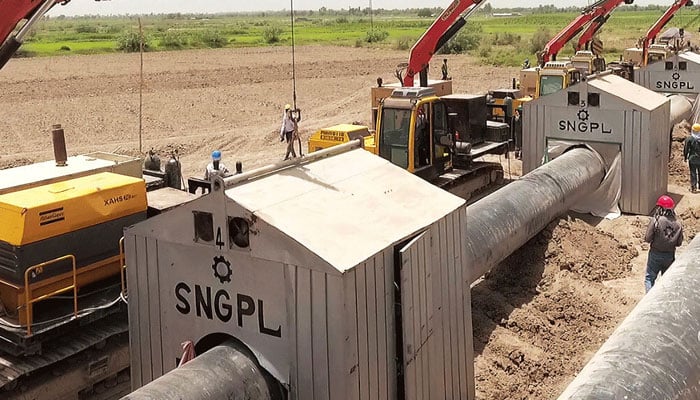- SOEs Act, 2023 to be amended to make local arbitration mandatory.
- SIFC wants public sector entities to resolve issues locally.
- SNGPL had shown intention to approach international forum.
ISLAMABAD: The government wants all the state-owned enterprises (SOEs) to resolve their disputes through local arbitration rather than international, The News reported Monday.
These entities will be directed to include all local arbitration clauses in their manual agreements, except in the case of international entities.
The State-Owned Enterprises (government and operations) Act, 2023 would be amended to make local arbitration mandatory between domestic SOEs and international arbitration, permissible only in agreements with foreign entities, with the prior permission of the government, a senior official of the Ministry of Law and Justice told the publication.
Earlier, the Special Investment Facilitation Council (SIFC) asked the law ministry to disallow public sector entities to approach international arbitration to resolve their disputes.
A dispute of Rs14 billion had come to the surface between Sui Northern Gas Pipelines Limited (SNGPL) and National Power Parks Management Company (NPPMC).
On August 7 this year, the Sui Northern notified NPPMCL of its intention to move international arbitration to recover the residual amount of Rs14.6 billion under its take or pay invoices for 2020 and 2021. This issue attracted the attention of SIFC, and then the supreme decision-making forum asked the ministry to amend the SOE Act and prevent both entities from moving international arbitration.
The law ministry has finalised the instructions to be issued to the SNGPL, NPPMCPL and Quaid-e-Azam Thermal Power Limited (QATAPL) to enter into a one-time arbitration agreement for local arbitration and the Arbitration Act 1940, as it can be done under a Section 17(1) of the State-Owned Enterprises (government and operations) Act, 2023.
Right now, the said entities have the forum of international arbitration in case of dispute as per their agreements between them.
Since all three entities are state-owned, the federal government cannot afford to pay the penalty in foreign currencies. It wants the resolution of SOE disputes should be attained through local arbitration.
Earlier in 2021, the SNGPL lost its claims of Rs19 billion against NPPMCL in two arbitrations before the London Court of International Arbitrations (LCIA).
NPPMCL owns and operates two 1,200 MW RLNG-based power plants in Punjab, situated in Haveli Bahadur Shah (Jhang) and Balloki, (Sheikhupura), and procures RLNG for power generation from the SNGPL.
The disputes appeared in May 2018 when SNGPL raised take or pay invoices against NPPMCL and proceeded to recover Rs10.37 billion from the gas supply deposit maintained by NPPMCL under its gas supply agreements. Disputing the SNGPL’s claims, NPPMCL contested the assertions of SNGPL on multiple forums and ultimately submitted the disputes for final resolution to LCIA.
The sole arbitrator issued its final awards related to these disputes earlier this week, holding the documents produced by SNGPL in support of its claims “little more than self-serving evidence”.
The arbitrator also held that SNGPL wrongly drew down the amount of Rs10.37 billion and directed it to pay the same to NPPMCL with interest from the date of recovery until full payment, which amounts to Rs15.3 billion.
In addition, the arbitrator dismissed the counterclaims raised by the SNGPL against NPPMCL, including an additional claim of Rs4.38 billion. It noted the SNGPL had failed to discharge “its burden of proving their quantum”.

 Latest News6 hours ago
Latest News6 hours ago
 Latest News6 hours ago
Latest News6 hours ago
 Business6 hours ago
Business6 hours ago
 Entertainment6 hours ago
Entertainment6 hours ago
 Latest News6 hours ago
Latest News6 hours ago
 Latest News1 hour ago
Latest News1 hour ago
 Latest News58 minutes ago
Latest News58 minutes ago
 Latest News52 minutes ago
Latest News52 minutes ago























